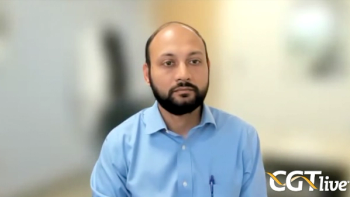
The associate professor of medicine in malignant hematology & stem cell transplantation at Vanderbilt University Medical Center discussed interim data from the phase 1/1b clinical trial evaluating Poseida's CAR-T.

The associate professor of medicine in malignant hematology & stem cell transplantation at Vanderbilt University Medical Center discussed interim data from the phase 1/1b clinical trial evaluating Poseida's CAR-T.

Review top news and interview highlights from the week ending November 15, 2024.
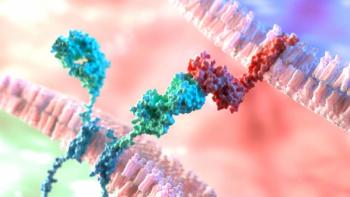
The safety data set for the trial included 39 patients who were treated with ALLO-316.
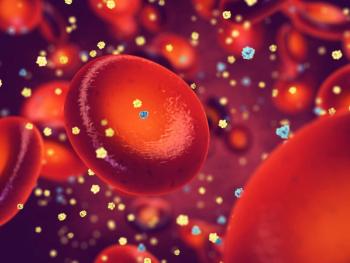
In observance of World Diabetes Day, held annually on November 14, we took a look back at the past few months' news in cell and gene therapy for diabetes indications.

The agency has set the PDUFA action date for the BLA for April 29, 2025.

The gene therapy has been approved in the UK and European Union since 2022 under the brand name Upstaza.

Catch up on the latest news, breakthroughs, and announcements from biotechnology companies making advancements in cell and gene therapies.

Neurogene pointed out that the SAE is consistent with the known risks of AAV vector-based gene therapy.

Chris Wright, MD, PhD, the chief medical officer and head of translational research at Ring Therapeutics, discussed research presented at ASGCT 2024.

An overview of novel drug-delivery vehicles and their potential role in improving gene and cell therapies.
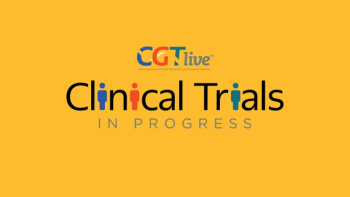
Following up on Liver Cancer Awareness Month, which is observed annually in October by the patient and clinician communities, CGTLive has decided to take a closer look at this ongoing study.
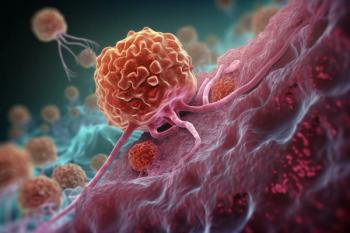
In observance of Gastric Cancer Awareness Month, held annually in November, we took a look back at the past few months' news in cell therapy for gastric cancer indications.

The patient died of respiratory failure 4 months after receiving BEAM-101.

The CAR-T therapy was approved based on the pivotal phase 1b/2 FELIX clinical trial (NCT04404660), which showed good rates of overall complete remission and median duration of remission.

Review top news and interview highlights from the week ending November 8, 2024.
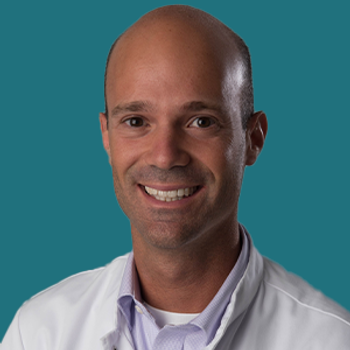
Intellia’s investigational CRISPR-Cas9 gene-editing therapy NTLA-2002 reduced monthly attacks by more than 70% in both tested dose arms.

The clinical holds on the 3 products were originally placed by the FDA in December 2023 based on findings from an inspection of CARsgen’s manufacturing facility.
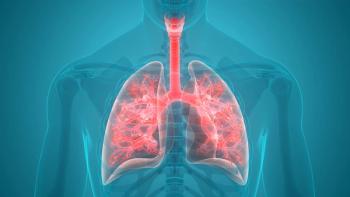
In observance of Lung Cancer Awareness Month, held annually in November, we took a look back at the past few months' news in cell and gene therapy for lung cancer indications.

Catch up on the latest news, breakthroughs, and announcements from biotechnology companies making advancements in cell and gene therapies.

According to HuidaGene, it is the first CRISPR/Cas13Y RNA-targeting therapy to receive clearance for a clinical trial from the FDA or any other regulatory agency.

R. Nolan Townsend, Sandi See Tai, MD, and Kim G. Johnson, MD, discussed Lexeo Therapeutics’ LX1001 gene therapy trial that demonstrated promising safety and biomarker effects in patients with early-stage Alzheimer disease.

The noninvasive gene therapy exceeded the 30% efficacy threshold for normalizing GCase activity across all doses.

Caroline Diorio, MD, FRCPC, FAAP, an attending physician at the Cancer Center at Children's Hospital of Philadelphia, discussed a study she coauthored that was recently published in Blood.

The randomized, controlled clinical trial treated patients with either a high dose of MCO-010, a low dose of MCO-010, or a sham–control.

LX1001's safety profile was characterized as well-tolerated with no amyloid-related imaging abnormalities reported.
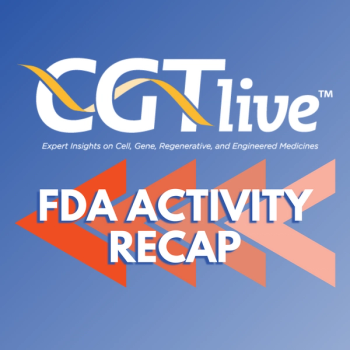
Catch up on any of the key FDA news stories you may have missed last month, with coverage highlights from the CGTLive® team.

RiboX stated that this is the first IND clearance the FDA has granted for any circular RNA therapy.

The attending physician at the Cancer Center at Children's Hospital of Philadelphia discussed a study she coauthored that was recently published in Blood.

Review top news and interview highlights from the week ending November 1, 2024.

Catch up on any of the key data updates you may have missed last month, with coverage highlights from the CGTLive™ team.